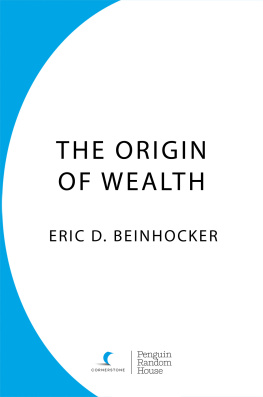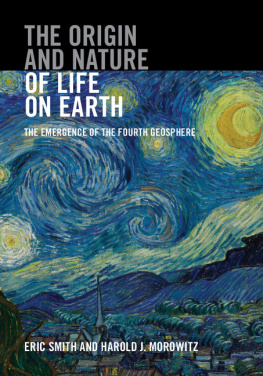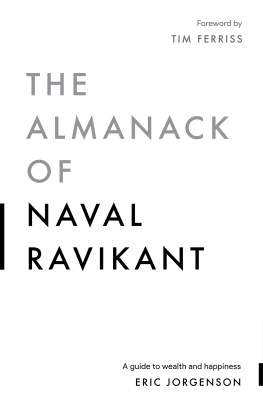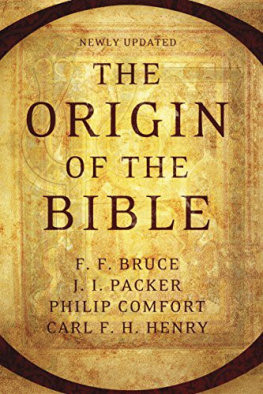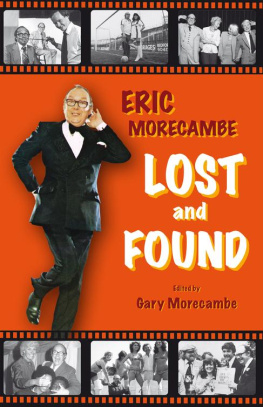Eric Beinhocker - The Origin of Wealth
Here you can read online Eric Beinhocker - The Origin of Wealth full text of the book (entire story) in english for free. Download pdf and epub, get meaning, cover and reviews about this ebook. year: 2018, publisher: Random House, genre: Politics. Description of the work, (preface) as well as reviews are available. Best literature library LitArk.com created for fans of good reading and offers a wide selection of genres:
Romance novel
Science fiction
Adventure
Detective
Science
History
Home and family
Prose
Art
Politics
Computer
Non-fiction
Religion
Business
Children
Humor
Choose a favorite category and find really read worthwhile books. Enjoy immersion in the world of imagination, feel the emotions of the characters or learn something new for yourself, make an fascinating discovery.
- Book:The Origin of Wealth
- Author:
- Publisher:Random House
- Genre:
- Year:2018
- Rating:4 / 5
- Favourites:Add to favourites
- Your mark:
- 80
- 1
- 2
- 3
- 4
- 5
The Origin of Wealth: summary, description and annotation
We offer to read an annotation, description, summary or preface (depends on what the author of the book "The Origin of Wealth" wrote himself). If you haven't found the necessary information about the book — write in the comments, we will try to find it.
The Origin of Wealth — read online for free the complete book (whole text) full work
Below is the text of the book, divided by pages. System saving the place of the last page read, allows you to conveniently read the book "The Origin of Wealth" online for free, without having to search again every time where you left off. Put a bookmark, and you can go to the page where you finished reading at any time.
Font size:
Interval:
Bookmark:

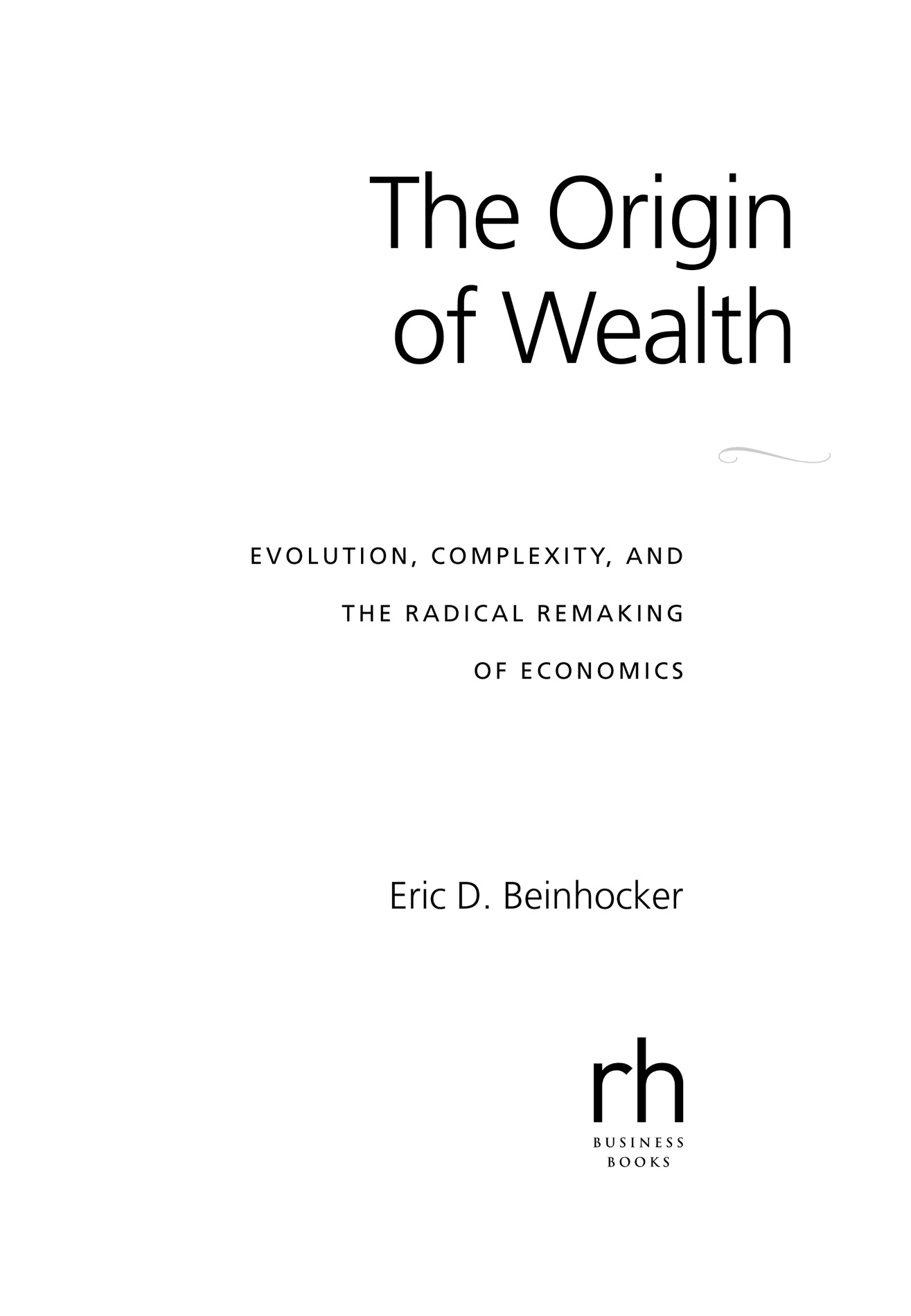
This ebook is copyright material and must not be copied, reproduced, transferred, distributed, leased, licensed or publicly performed or used in any way except as specifically permitted in writing by the publishers, as allowed under the terms and conditions under which it was purchased or as strictly permitted by applicable copyright law. Any unauthorized distribution or use of this text may be a direct infringement of the authors and publishers rights and those responsible may be liable in law accordingly.
Epub ISBN: 9781448106226
Version 1.0
Published by Random House Business Books 2018
1 3 5 7 9 10 8 6 4 2
Copyright McKinsey & Company, Inc., 2005
Eric D. Beinhocker has asserted his right under the Copyright, Designs and Patents Act, 1988 to be identified as the author of this work
First published in Great Britain in 2007 by Random House Business Books
Random House Business Books
20 Vauxhall Bridge Road, London, SW1V 2SA
www.penguin.co.uk

Random House Business Books is part of the Penguin Random House group of companies whose addresses can be found at global.penguinrandomhouse.com
A CIP catalogue record for this book is available from the British Library
ISBN 9780712676618
The author grateful acknowledges permission to reprint the following figures: : J. Doyne Farmer, Market Force, Ecology and Evolution, Industrial Corporate Change 11 (5), pp. 895-953. Copyright 2002 Oxford University Press. Reprinted with permission. 18-1: From Culture Matters, by Lawrence E. Harrison and Samuel P. Huntington. Copyright 2000 by Lawrence E. Harrison and Samuel P. Huntington. Reprinted by permission of Basic Books a member of Perseus Books, LLC.
Eric D. Beinhocker is a partner at McKinsey & Company and is one of the leaders of its Global Strategy Practice. He has also worked as a venture capitalist, entrepreneur, and has held research appointments at the Harvard Business School, the MIT Center for Organizational Learning, and the Santa Fe Institute.
FOR TILLY
A door like this has cracked open five or six times since we got up on our hind legs. Its the best possible time to be alive, when almost everything you thought you knew is wrong.
Tom Stoppard, Arcadia
As I write this, the field of economics is going through its most profound change in over a hundred years. I believe that this change represents a major shift in the intellectual currents of the world that will have a substantial impact on our lives and the lives of generations to come. I also believe that just as biology became a true science in the twentieth century, so too will economics come into its own as a science in the twenty-first century. The great historian and philosopher of science, Thomas Kuhn, observed that scientific inquiry does not advance through steady, even progress. Rather, as one scholar of Kuhns work described it, science moves forward through a series of peaceful interludes punctuated by intellectually violent revolutions in each of which one conceptual world view is replaced by another Kuhn called these periods of upheaval paradigm shifts, and while the phrase has lost some of its power owing to overuse, this book will argue that what we are witnessing in economics today is in fact the early stages of just such a paradigm shift.
Why does a paradigm shift in economics matter? Why should anyone care other than economists? Most people view economics as a dry, academic, and highly technical fieldthe dismal science as Thomas Carlyle famously put it. Throughout history, bad economic ideas have led to misery for millions, while good economic ideas have been fundamental to prosperity.
Despite the importance of economic thinking, few people outside the hushed halls of academia are aware of the fundamental changes under way in the field today. This book is the story of what I will call the Complexity Economics revolution: what it is, what it tells us about the deepest mysteries in economics, and what it means for business and for society at large.
Some scientific revolutions are born whole, the product of a single genius, such as Einsteins development of relativity theory. Others are the product of many people working over multiple decades, for example, the quantum physics revolution from 1900 to 1930. The Complexity Economics revolution is similar to the latter. It is a revolution that is the result of many years of work by scores of people around the world. While many of the ideas in Complexity Economics have deep historical roots, the revolution did not begin brewing until the late 1970s when advances in the physical sciences caused a small number of economists and social scientists to begin to wonder if there might be a fundamentally new way to look at the economy. The advent of cheap and plentiful computing power in the 1980s and 1990s then enabled researchers to explore these ideas in new and often unforeseen ways, kicking the Complexity Economics revolution into full gear.
But it is a revolution still very much in-progress, and as such, it is controversial. Some economists will enthusiastically agree with the ideas in this book, some will vehemently disagree, and many more will agree with some points and disagree with others (as the old joke goes, if you want four opinions, just ask two economists). Nevertheless, I believe that the intellectual tide has turned firmly in the direction of Complexity Economics, and that its concepts will provide the foundation of economic theory and practice for many decades to come. The role of this book is to tell the story of the Complexity Economics revolution and make it accessible to a general audience. In doing so, I will also offer my own views on what the ideas mean, and how they can be applied to the practical worlds of business, finance, and government.
Ive written this book with three audiences in mind. The first is the business leaders, investors, and policy makers who are interested in how new ideas from economics and science might impact their work. For this audience I should note that this is not intended to be a What do I do Monday morning? book. Complexity Economics contains a set of very powerful concepts that are highly relevant to some of the most difficult problems executives and policy makers face. However, readers will not find detailed case examples of how leading companies are using Complexity Economics, nor any easy ten-step programs, in this book. Many management books promise readers ideas that are cutting edge and yet have also been proven to work by successful application in scores of companies over many yearsof course, you cant have it both ways. My claim is that the ideas of Complexity Economics are indeed cutting-edge, and thus by definition have not yet been widely applied. A few companies have experimented with them, and others, through instinct and serendipity, have stumbled into practices that are consistent with Complexity Economics thinking. Although there have been a few attempts to turn these experiences into management tools, I believe it is still too early to say specifically how these ideas will be applied. Rather than cases and tools, my focus will be on helping readers rewire their thinking about how economic systems work. Rather than a Monday-morning book, I would think of this as a Sunday-morning bookits goal is not to tell you what to do, but to change how you think.
Font size:
Interval:
Bookmark:
Similar books «The Origin of Wealth»
Look at similar books to The Origin of Wealth. We have selected literature similar in name and meaning in the hope of providing readers with more options to find new, interesting, not yet read works.
Discussion, reviews of the book The Origin of Wealth and just readers' own opinions. Leave your comments, write what you think about the work, its meaning or the main characters. Specify what exactly you liked and what you didn't like, and why you think so.

